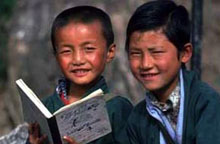 |
Unit 7 Reading Passage |
 |
||||||||||||||||
 |
||||||||||||||||
 |
||||||||||||||||
 |
||||||||||||||||
|
||||||||||||||||
 |
How is the United
Nations addressing the AIDS crisis? |
As you are reading this text, someone in your country has been affected by the AIDS crisis. People in every part of the world have been affected by the AIDS pandemic. Every nation in the world has had to take steps to address it. According to a recent United Nations estimate, 38.5 million people across the globe are infected with HIV-AIDS. What is the United Nations doing to address the AIDS crisis? UN-AIDS and its agencies have brought some innovative ways of spreading the message that, first, people need to overcome the stigma of AIDS so they can come forward to learn about prevention, diagnosis and treatment. One way to transmit this message is by providing education and AIDS awareness training to local community members whose work brings them into regular contact with other members. One such local commuity member is Paul Lopez, a hairdresser in Mexico City. Paul’s clients tend to confide in him, their regular hairdresser. Therefore, he was trained by a UN-AIDS programme to dispense advice about testing and treatment of HIV-AIDS. Now, along with advice about beauty, Paul tells clients how they can protect themselves from the AIDS virus or where they can go for treatment should they need it. A typical case is fourteen year-old Justin of Malawi, who has to care for his 10-year-old brother and nine-year-old sister. Justin says it is very hard to find enough to eat although he does his best to support himself and his siblings through his job carrying food for merchants. Since Justin and his siblings have no one to take them in, they continue to live by themselves in their deceased parents' home. United Nations and its agencies such as UNICEF sends aid workers and mobilizes community-based volunteer groups to go to the homes or orphaned children with daily supplies of food, money and advice on how to spend it. The aid workers also know the necessity of encouraging the children to go to school. Children's chances of completing their education are cut in half once they become orphans. One way the United Nations helps single and foster parents to raise income levels is by fostering micro-credit cooperatives in rural villages. Micro-credit programmes allow traditional craft-makers and farmers to form cooperatives and sell more of what they produce. The increased incomes enable single and adoptive foster parents to raise their income levels so they can support orphaned children. Such programmes have been especially successful among single mothers. |